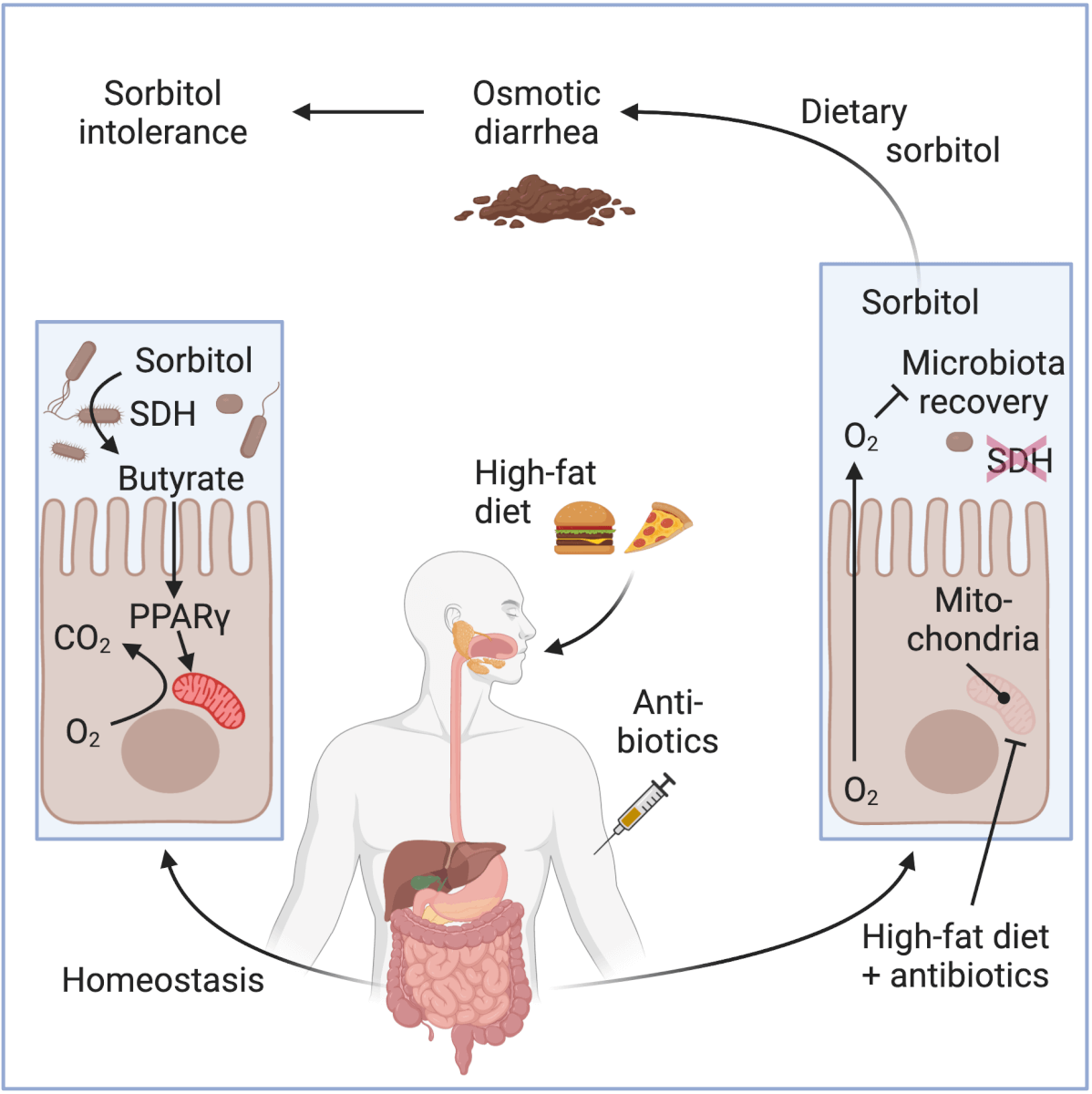🔑 Key Findings:
- Sugar-free candy and gum can give some people more gas
- Scientists say the problem stems from issues digesting sorbitol
- The drug mesalazine may help treat sorbitol intolerance
DAVIS, Calif. — You might want to think twice before putting a stick of sugar-free gum into your mouth. Researchers say it can negatively impact your gut health — including giving you more gas. Researchers from the University of California-Davis are revealing how changes in the gut microbiome can lead to difficulties in digesting sorbitol, a sugar alcohol commonly found in sugar-free gum, candies, and naturally in fruits like apples and avocados.
Sorbitol intolerance manifests through symptoms such as bloating, cramps, and diarrhea, even from small quantities of the compound. The UC Davis study, conducted on mice, has identified a crucial link between the use of antibiotics, high-fat diets, and a decrease in specific gut microbes, notably those in the Clostridia class, which are essential for breaking down sorbitol.
“Our research suggests that microbial sorbitol degradation normally protects the host against sorbitol intolerance. However, an impairment in the microbial ability to break down sorbitol causes sorbitol intolerance,” says study first author Jee-Yon Lee, an assistant project scientist in the UC Davis Department of Medical Microbiology and Immunology, in a media release.

Researchers utilized metagenomic analysis to pinpoint gut bacteria with genes capable of producing the enzyme necessary for sorbitol breakdown. They discovered that certain Clostridium bacteria, which thrive in low-oxygen environments, were diminished following antibiotic treatment and a high-fat diet in mice. This reduction led to increased oxygen levels in the gut, hampering the breakdown of sorbitol.
To counteract this, one of the experiments involved feeding mice Anaerostipes caccae, a bacterium that generates butyrate, a fatty acid that helps reduce oxygen levels in the intestine by enhancing its consumption by the gut’s lining. This adjustment restored Clostridia levels, effectively shielding the mice from sorbitol-induced diarrhea.
The study also suggests that mesalazine (5-aminosalicylate), a drug commonly used to treat inflammatory bowel diseases, could potentially treat sorbitol intolerance in humans. Mesalazine works similarly to butyrate-producing bacteria by maintaining low oxygen levels in the gut, which are conducive to Clostridia’s survival and function.
“This discovery is crucial, given the prevalent use of sorbitol and similar sugar alcohols in the production of keto-friendly diet foods that are high in fat content,” notes Lee. “It also highlights the importance of oxygen consumption by the epithelial lining in the intestines in maintaining a healthy balance of gut bacteria, especially Clostridia, for proper digestion of certain sugars.”
However, researchers caution that mice have a higher tolerance for sorbitol compared to humans, thanks to their cecum, a digestive system feature that aids in carbohydrate digestion. This difference indicates that clinical studies are necessary to confirm whether mesalazine could effectively treat sorbitol intolerance in humans.

“Our study provides a completely new starting point for approaches to diagnose, prevent and treat sorbitol intolerance,” says study senior author Andreas Bäumler, a distinguished professor and vice chair of research in the UC Davis Department of Medical Microbiology and Immunology.
The collaborative effort included contributions from experts at the UC Davis School of Medicine, Lawrence Berkeley National Laboratory, Kitasato University in Japan, and the Chan Zuckerberg Biohub.
The study is published in the journal Cell.
You might also be interested in:
- Common food preservative in beer and cheese may wreak havoc on your gut
- Why do some farts smell and some don’t? And why do some farts feel hot?
- Got gas? Poor mental health may be the reason you’re breaking wind
- 8 Ways Artificial Sweeteners Are Bad For You: Why ‘Sugar-Free’ Isn’t Always Healthier
- Would you eat this? Scientists develop lab-grown hybrid ‘cultured beef rice’
